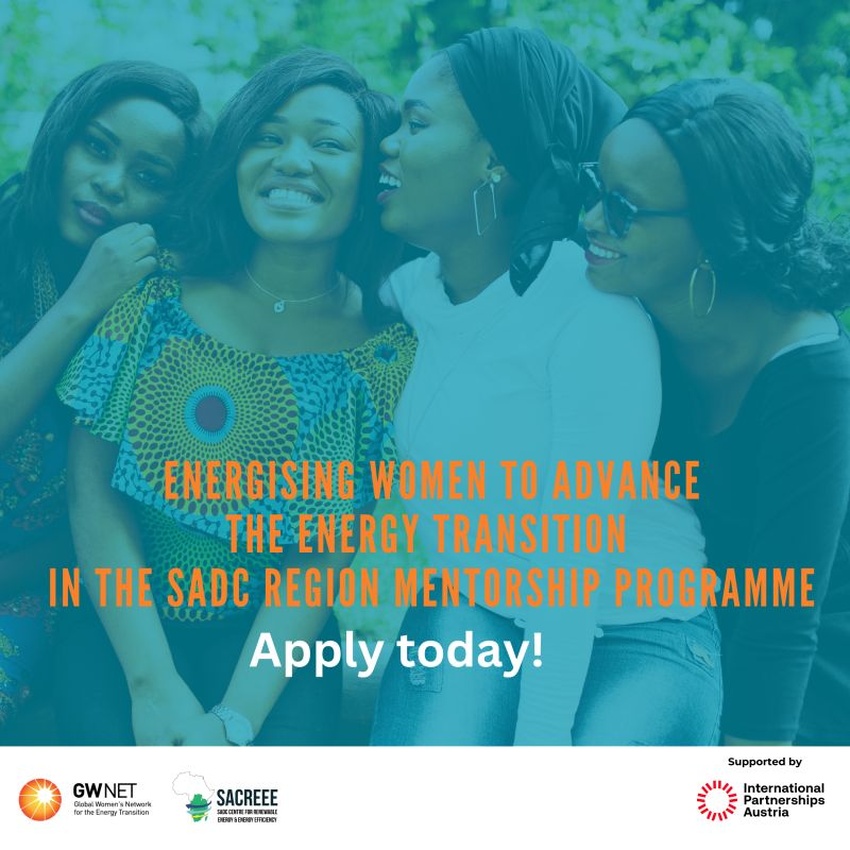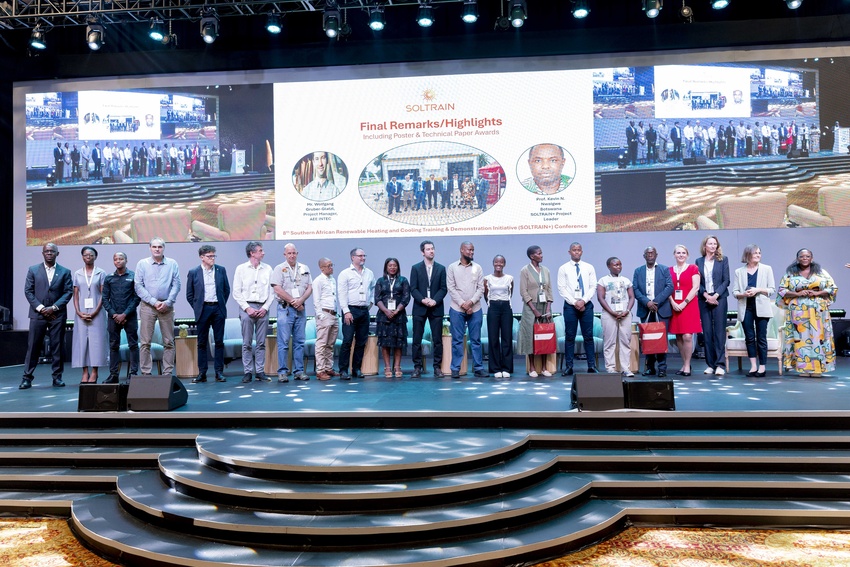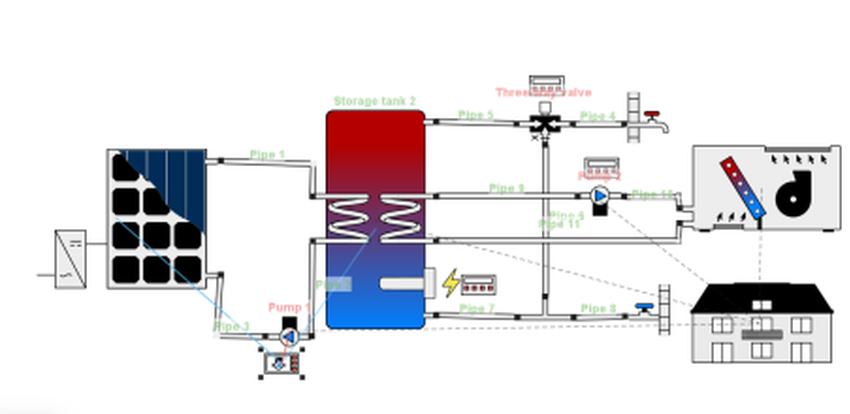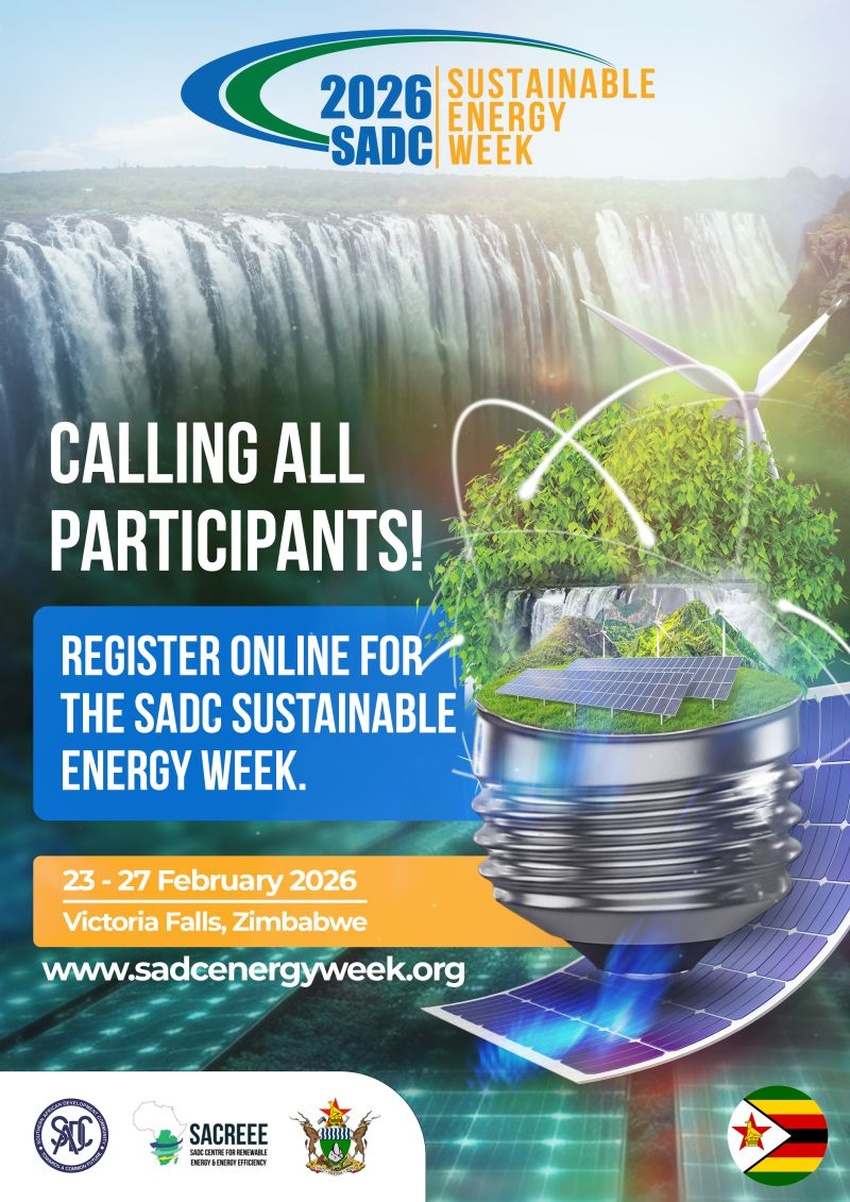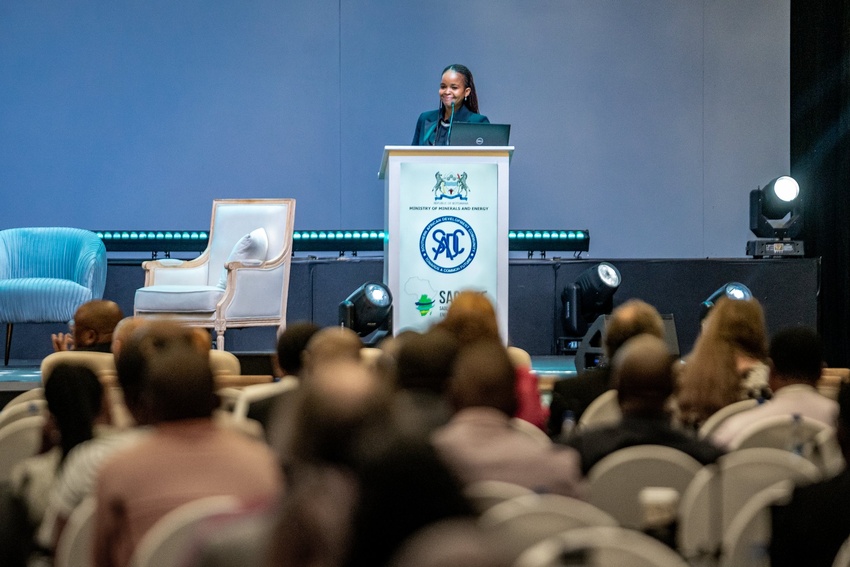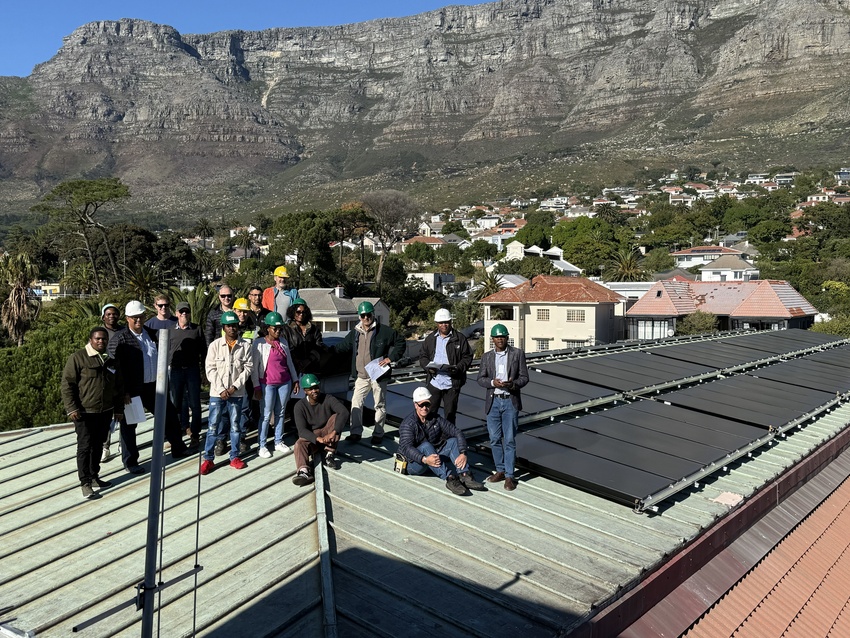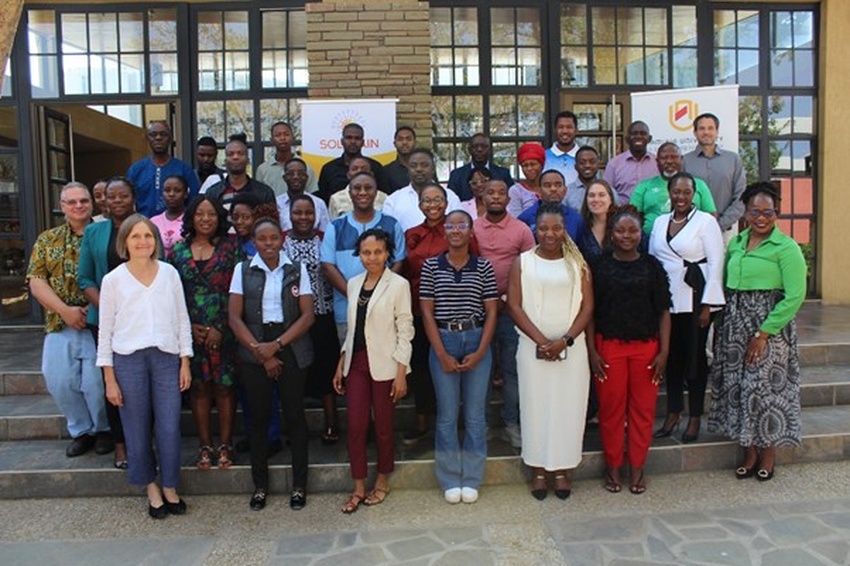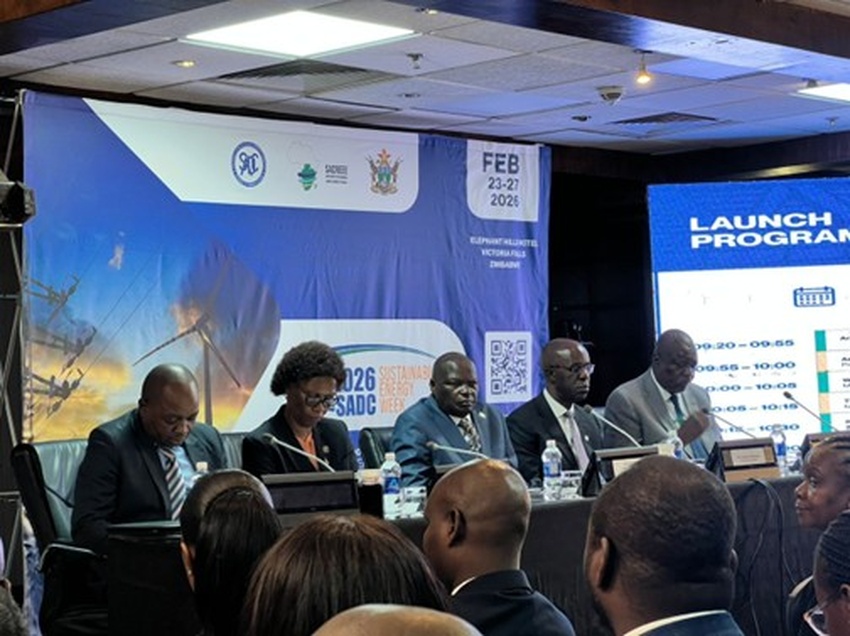How do we implement Solar Thermal Technologies in a Techo- Economically feasible way in South Africa?
Submitted by Dr Karen SurridgePublished 7 years, 7 months ago
The SOLTRAIN project aims to tackle water heating energy needs and create opportunities through addressing the solar water heating sector across six partner countries in the Southern African Development Community (SADC), namely, Botswana, Lesotho, Mozambique, Namibia, South Africa, and Zimbabwe, through training, awareness raising, performance monitoring and demonstration systems.
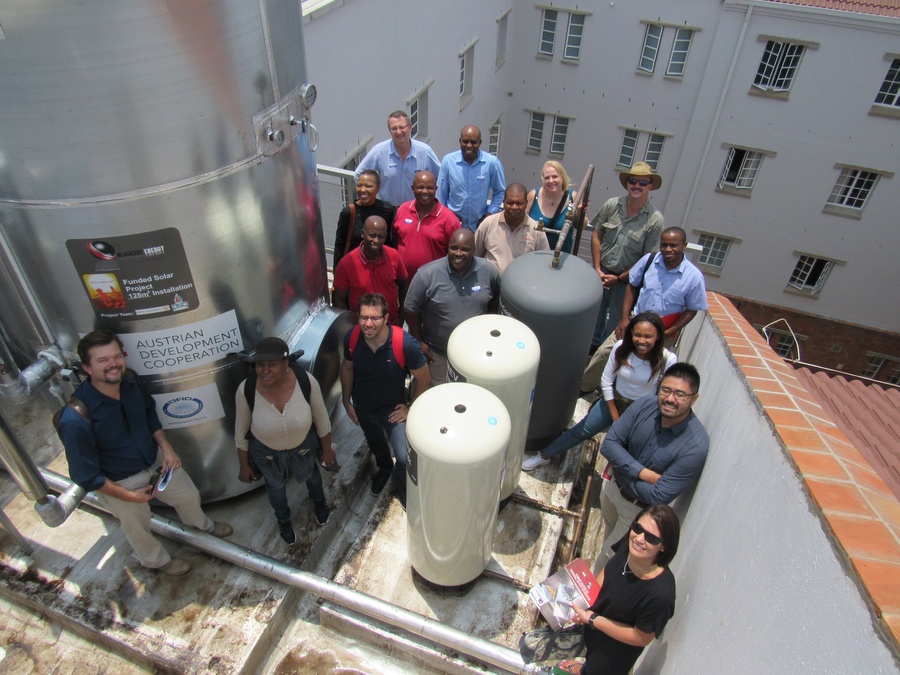
The SA government has realised that a low carbon economy can bring benefits and in particular it will support climate change mitigation measures. The Government has already committed to reducing carbon emissions in South Africa by 34% by 2020 and 42% by 2025 depending on certain conditions. In order to meet these emissions reduction targets, several strategies will need to be used towards meeting this goal.
On the 6th February 2018, SANEDI hosted the launch and discussion of the “Solar Thermal Technology Implementation Plan for South Africa” as part of Phase III of the SOLTRAIN programme. This plan outlines what needs to be achieved in order to meet the SOLTRAIN visionary target to have ½ m² of net solar thermal collector area for every member of the population by 2030 in South Africa.
It is split into 5 “Roadmaps” that essentially outline projected installations needing to be met in order to achieve the goal:
Roadmap 1: High Pressure Residential Solar Water Heating
To grow the installed area to ~12 000 000 m² by 2030, requires a growth rate of 21% per annum on annual installations
Roadmap 2: Low Pressure Residential Solar Water Heating
The South African government has committed to install 600 000 units over two years. For the purposes of this roadmap, it is presumed that this commitment of 300 000 units per year will be sustained up to 2030, to produce a total installation number of 5 200 000 units
Roadmap 3: Industrial/Commercial/ Multi- Family Residential installations for Solar Heating and Cooling
If this market is grown with 40% per year on total installations, there will be 48 848 m² of solar collectors installed by 2030
Roadmap 4: Unglazed Swimming Pool Solar Water Heaters
If this market is grown with 35% per year on total installations, there will be 527 630 installations, or 10 522 598 m² of solar collectors installed by 2030, which represents 65% of the current number of swimming pools in South Africa
Roadmap 5: Passive Solar Thermal (PST) heating/cooling of buildings
It should be noted that solar thermal buildings include at least one day’s integral thermal storage as a result of the prescribed interior thermal mass (SANS10400XA).
Over 50 people from across sectors (industry associations, science councils, private sector, government departments, academic institutions, municipalities, NGOs and State- owned entities) attended this launch and shared in a presentation of the document as well as a lively panel discussion to explore roles in support of the implementation plan for Industry, Government and R&D sectors. Key to achieving this is a focus on awareness and marketing, institutional issues, workforce development (in terms if training and education) and research and development. Valuable points to this end were raised during the panel discussion:
- Knowledge sharing is key and important information must reach decision makers as well as the general public, just as important is coordination between sectoral role players, what is a possible mechanism to achieve this?
- How is government support obtained for this sector and which government department/s should endorse this?
- How is SWH linked to industrialisation and development of the industry in South Africa and what is needed in terms of support by the government? And how can this link to the Special Economic Zones or Industrial Parks initiatives
- What is the local potential for evacuated tube technology in terms of job creation, possibilities of a municipal/government tariff levee, the local and export value chain?
- Should there be research and development with an RRR (reduce, reuse, recycle) focus for the sector?
- How do potential users know what is a good system? Should market competition define this?
- How to approach solutions to testing and certification (energy efficiency rating B) challenges? How to make component testing easier?
- Technology reputation is key to a successful implementation
- Defining a strategy, coordination, knowledge management, awareness, systemic approach and an implementation plan, broader vision
- How to identify and exploit any competitive advantages for South Africa in this sector?
- How to avoid peaks?
- Consider incentives vs. rebates
- How to address and achieve system simplicity?
- The Sustainable Energy Society of Southern Africa (SESSA) has a company list of certified installers and is an instrument for public awareness
- Consider the implications of using PV to reach the defined targets
- Consider the concept of heat ESCos (Energy Service Companies)
It was suggested that SOLTRAIN might explore the possibility of compiling a study on “lessons learned” that focuses on what strategies should not be repeated, showcasing together with learning of successes and failures and how to maintain stability in a solar water heating roll out programme. A further study, might explore the heat technology, area vs. yield, competitive advantages and systems for commercial and industrial application, and to a large extent this is being addressed the Solar PayBack Project being implemented by SANEDI (https://www. solar-payback.com).
In addition to the above, it should be noted that the National Solar Water Heating Programme is in the process of being moved to Central Energy Fund (CEF). One of the sub-programmes under this, the Repair/Replace programme, which is at an advanced stage, has been delegated to the DoE-IPP Office. Additional information, in regard to the NSWHP current status and objectives, can be accessed at https:// solarwaterheating-programme.co.za
Following the launch of the implementation plan document several key stakeholders representing industry, government, research and development were hosted on a site visit to explore some of the SOLTRAIN systems installed in the Gauteng area during SOLTRAIN phases 2 and 3. The aim of this tour was to showcase different types of systems at different scales and their deliverable performance.
Achieving this vision will require an effective, long-term and balanced policy effort to allow for optimal technology progress, cost reduction and ramp-up of industrial manufacturing for mass deployment. The South African Government will need to provide long-term targets and stable supporting policies to build confidence for investment in manufacturing capacity and deployment of solar thermal systems.

